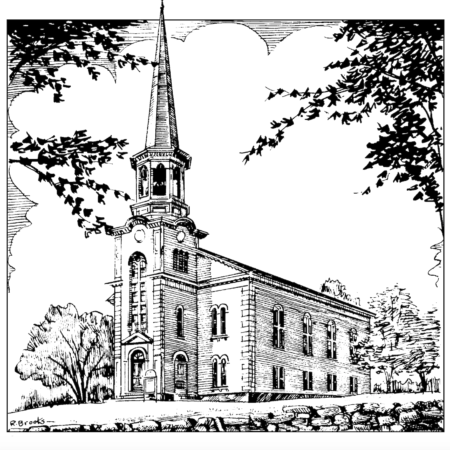Unlikely Places Where Faith Shows Up
Luke 7: 1 – 10
7After Jesus had finished all his sayings in the hearing of the people, he entered Capernaum. 2A centurion there had a slave whom he valued highly, and who was ill and close to death. 3When he heard about Jesus, he sent some Jewish elders to him, asking him to come and heal his slave. 4When they came to Jesus, they appealed to him earnestly, saying, “He is worthy of having you do this for him, 5for he loves our people, and it is he who built our synagogue for us.” 6And Jesus went with them, but when he was not far from the house, the centurion sent friends to say to him, “Lord, do not trouble yourself, for I am not worthy to have you come under my roof; 7therefore I did not presume to come to you. But only speak the word, and let my servant be healed. 8For I also am a man set under authority, with soldiers under me; and I say to one, ‘Go,’ and he goes, and to another, ‘Come,’ and he comes, and to my slave, ‘Do this,’ and the slave does it.” 9When Jesus heard this he was amazed at him, and turning to the crowd that followed him, he said, “I tell you, not even in Israel have I found such faith.” 10When those who had been sent returned to the house, they found the slave in good health.
Historical Context
Centurions had a middling role in the hierarchy of the Roman army, put in charge of about 80 soldiers but situated below those who commanded cohorts (consisting of six centuries) and legions (consisting of ten cohorts). The inclusion of “also” at the beginning of verse 8 suggests an analogy between the authority of centurion and Jesus’ authority. As the centurion is given authority from above to command those under him, so the implication is that Jesus has an authority from God that he can enact by simply by saying the word. The centurion’s faith in Jesus’ authority proves to be well placed when Jesus heals his slave without visiting his home
Theme: Unlikely Places Where Faith Shows Up
Centurions show up rather frequently in the Gospels and in Acts. This in itself is not surprising, since centurions would have been a part of the Roman occupation force in Judea and Galilee in the first century. What is surprising is that these representatives of Roman occupation are portrayed in quite positive ways in the New Testament and here in Luke. They end up responding to Jesus with a recognition of his identity and, sometimes, with faith.
Jesus is cast in the unlikely role of responder and not initiator in this passage. When asked to heal the slave, he goes with the Jewish elders (7:6). He responds in amazement at the centurion’s confidence that Jesus needn’t actually come to his house to heal his slave: “I tell you, not even in Israel have I found such faith” (7:9). And finally, Jesus heals the servant, although this is not narrated explicitly (7:10).
Somehow, it seems fitting in this surprising story that Jesus himself is surprised and amazed at the trust this centurion demonstrates (7:9). He is surprised to find faith in a centurion that surpasses what he has seen in anyone from Israel. And we can learn something from Jesus’ own surprise at the specter of an enemy soldier proving to be a model of faith for the people of God. Maybe we should not be surprised by the unlikely places that faith shows up in our own world.


0 Comments